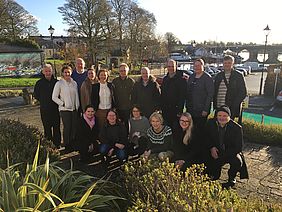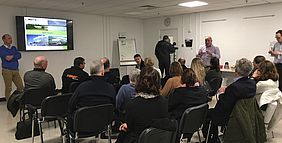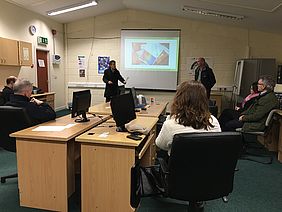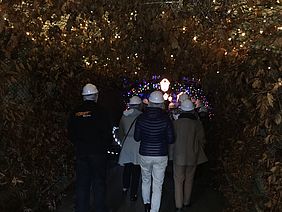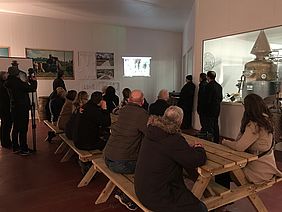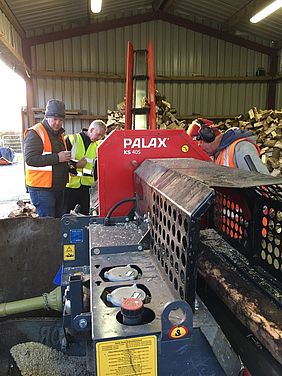SECURE project partners met at The Dock Arts Centre in County Leitrim (Ireland) on 28th and 29th November 2017. The aim of the meeting was to bring partners together for the fourth time to discuss project progress and agree upcoming activities. Partners reviewed the project workplan, roles, responsibilities and contributions required. The project plan was discussed, together with deliverables since the last partner meeting and activities planned for the next 6 months. Other project elements discussed included project and financial reporting and communication requirements, etc. Following the meeting on both days, partners had the opportunity to visit some sites they could learn from.
Site visits
On day 1, partners visited three sites in the afternoon: Masonite, Mc Cauley Wood Fuels and Mohill Enterprise Centre.
Masonite is a company manufacturing door skins and is a large user of wood products linked to the biomass industry and a key element in the local bio-energy supply chain.
McCauley Wood Fuels gave an opportunity to see how a private forest managed by the Western Forestry co-operative has been developed with Mc Cauleys, and also see how this business transfers raw material into biomass product.
Mohill has developed a Smarter Energy Community and the Enterprise Centre has carried out a range of energy efficiency improvements as well as being a key driver in the Mohill Community Project.
On day 2, partners visited two further sites: Arigna Mines and The Food Hub.
Arigna Mining Experience Centre was developed to preserve the energy heritage of the Arigna Valley and to ensure that Arigna maintains its link with Energy themes: Past, Present & Future.
The Food Hub is a best practice food production and education facility based in Drumshanbo. Co. Leitrim. Since its establishment in 2004, it has emerged as Ireland’s premier artisan multi-tenant food production enterprise centre, established by a social enterprise. The centre gives an opportunity for local food to be produced and marketed in the region thus reducing the energy usage from large scale food importation.
Overall, the meeting was very valuable for project development with the strategy to build Smarter Energy Communities reviewed; the transnational low carbon services directory has been updated, the inventory of shared good practices revised and a transnational demand and supply analysis carried out. SECURE partners have now started working to implement transnational low carbon actions. The site visits also proved fruitful for exchange of experience with partners learning about good local energy practices.

